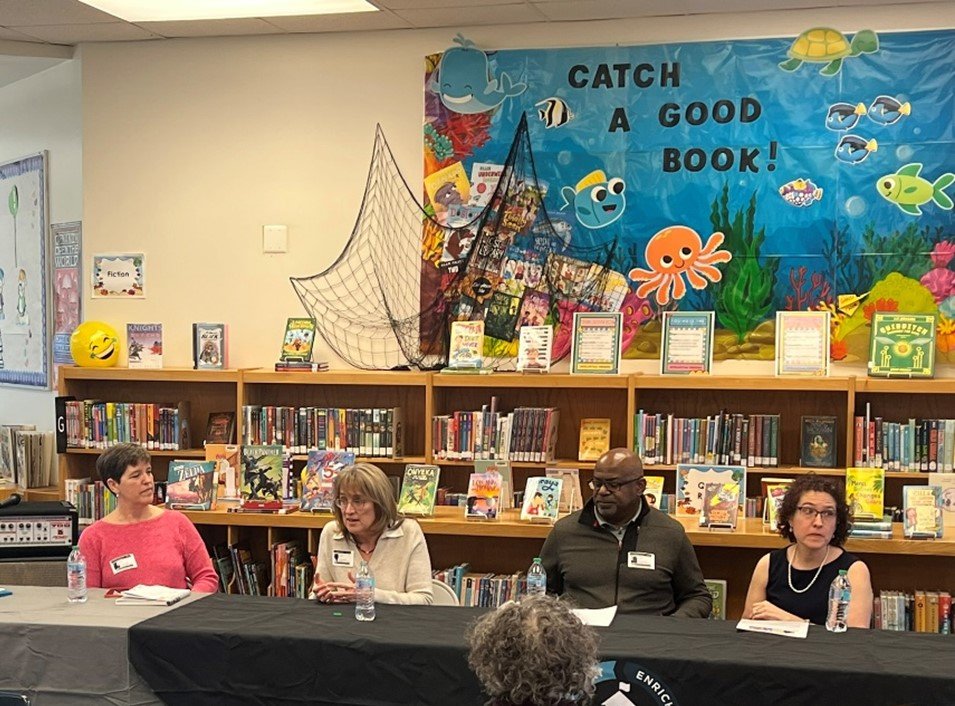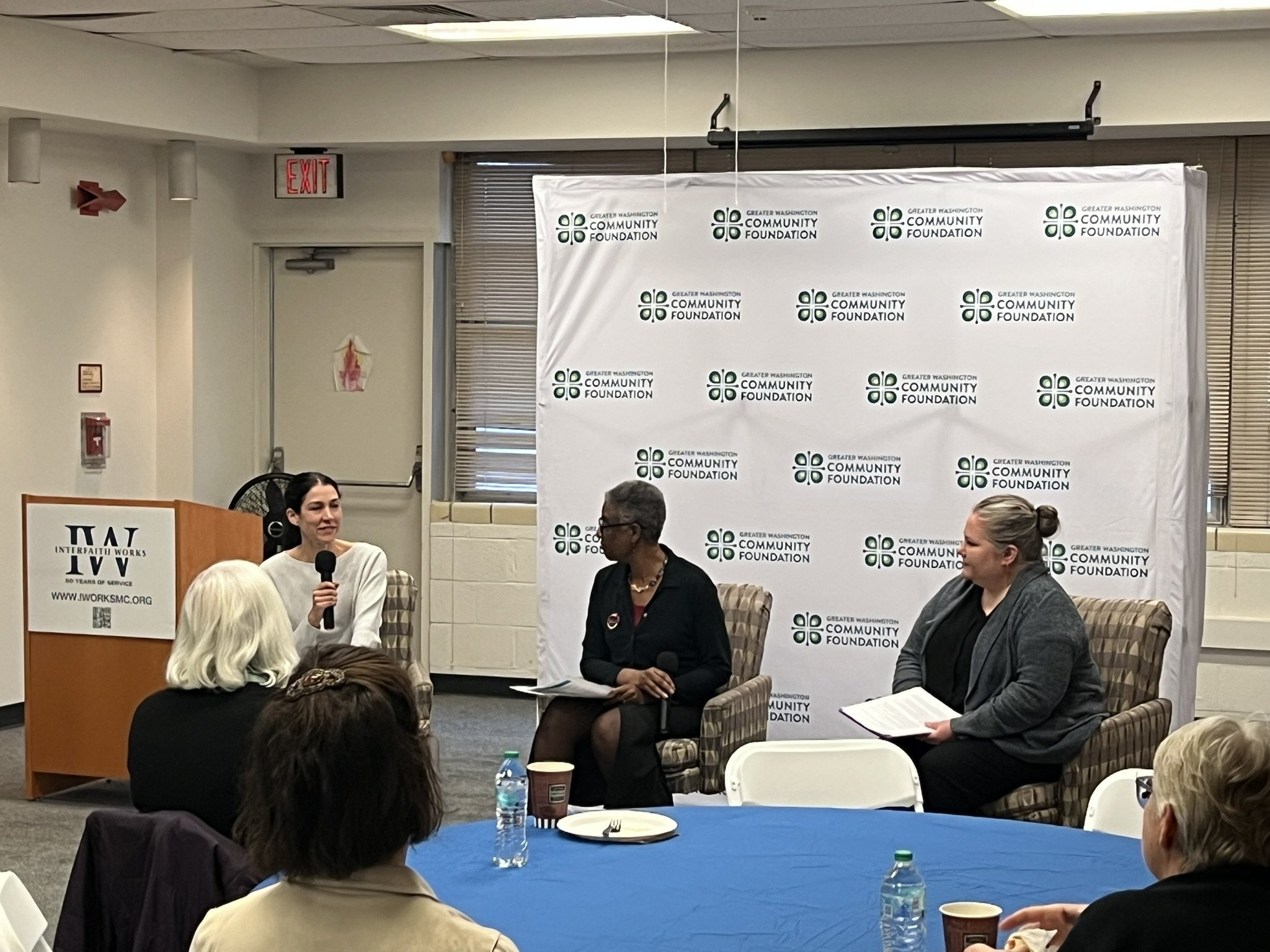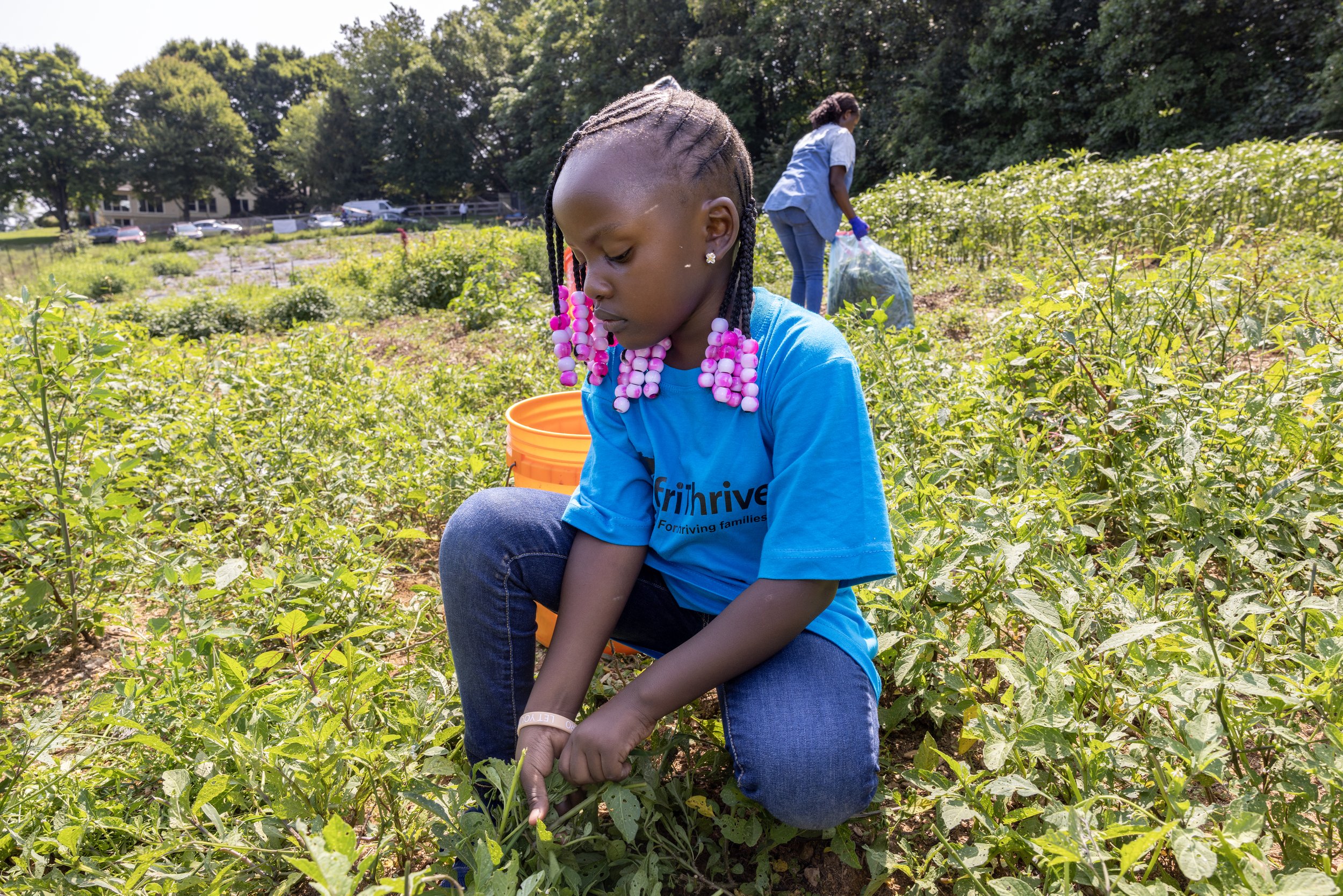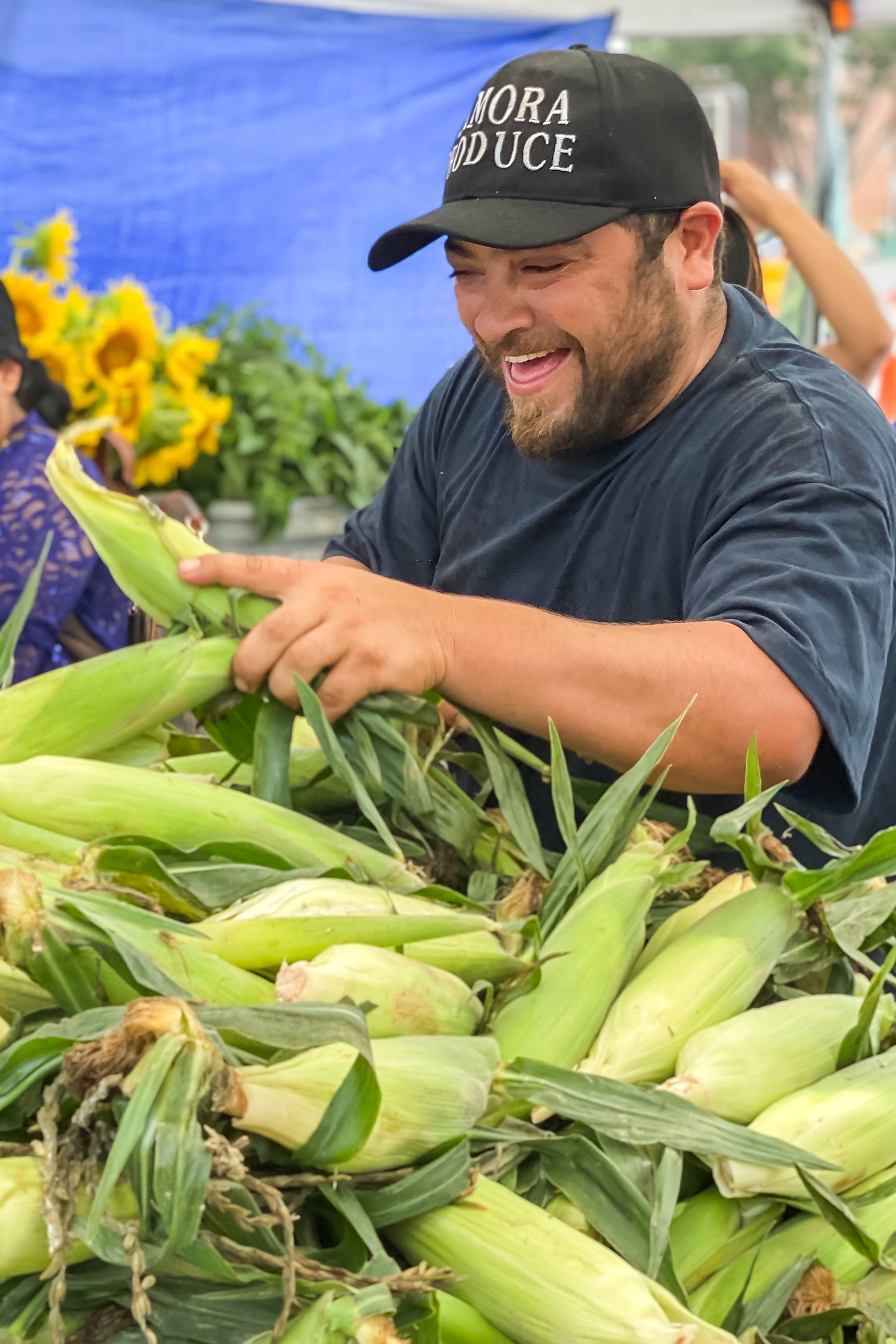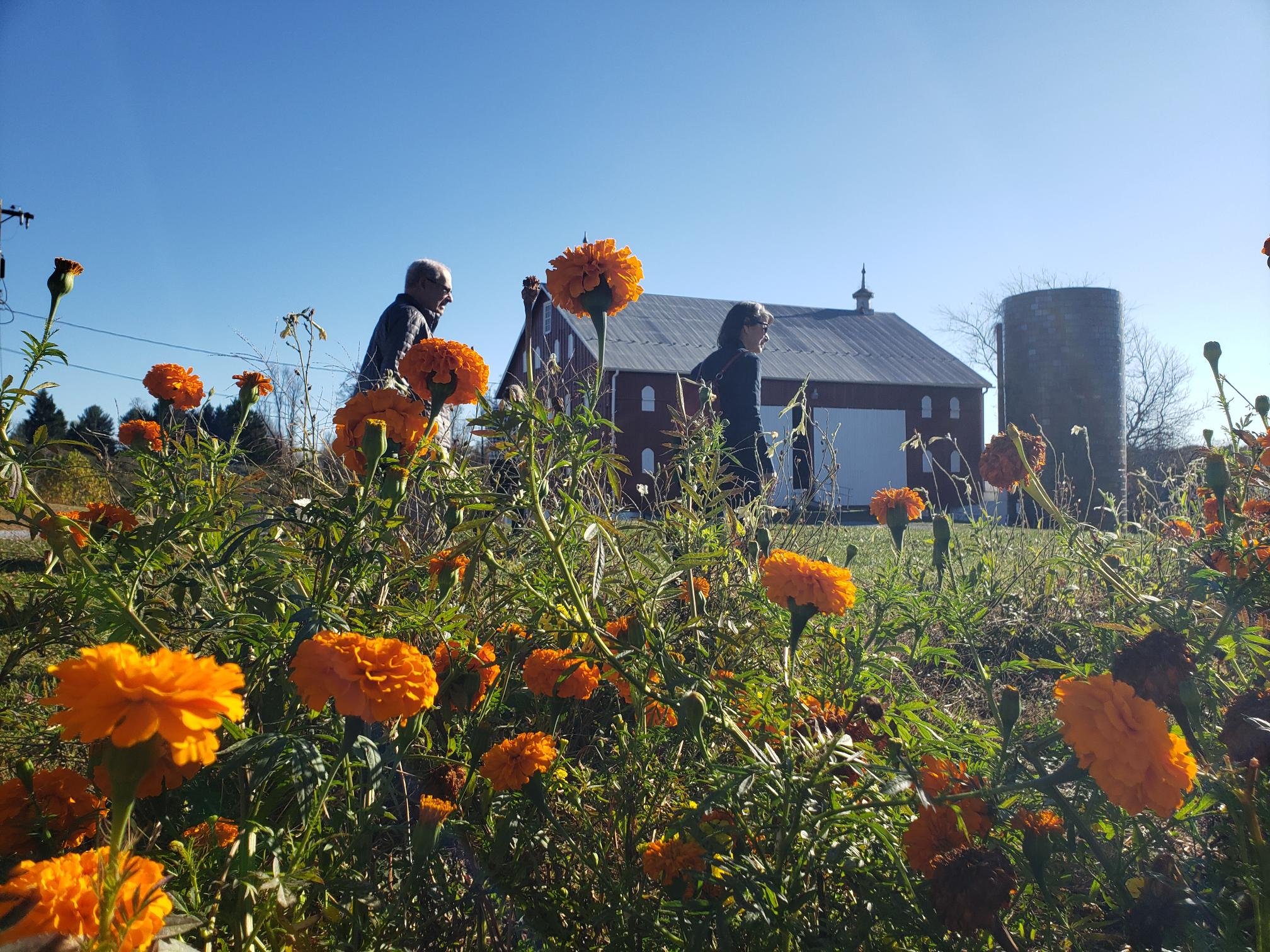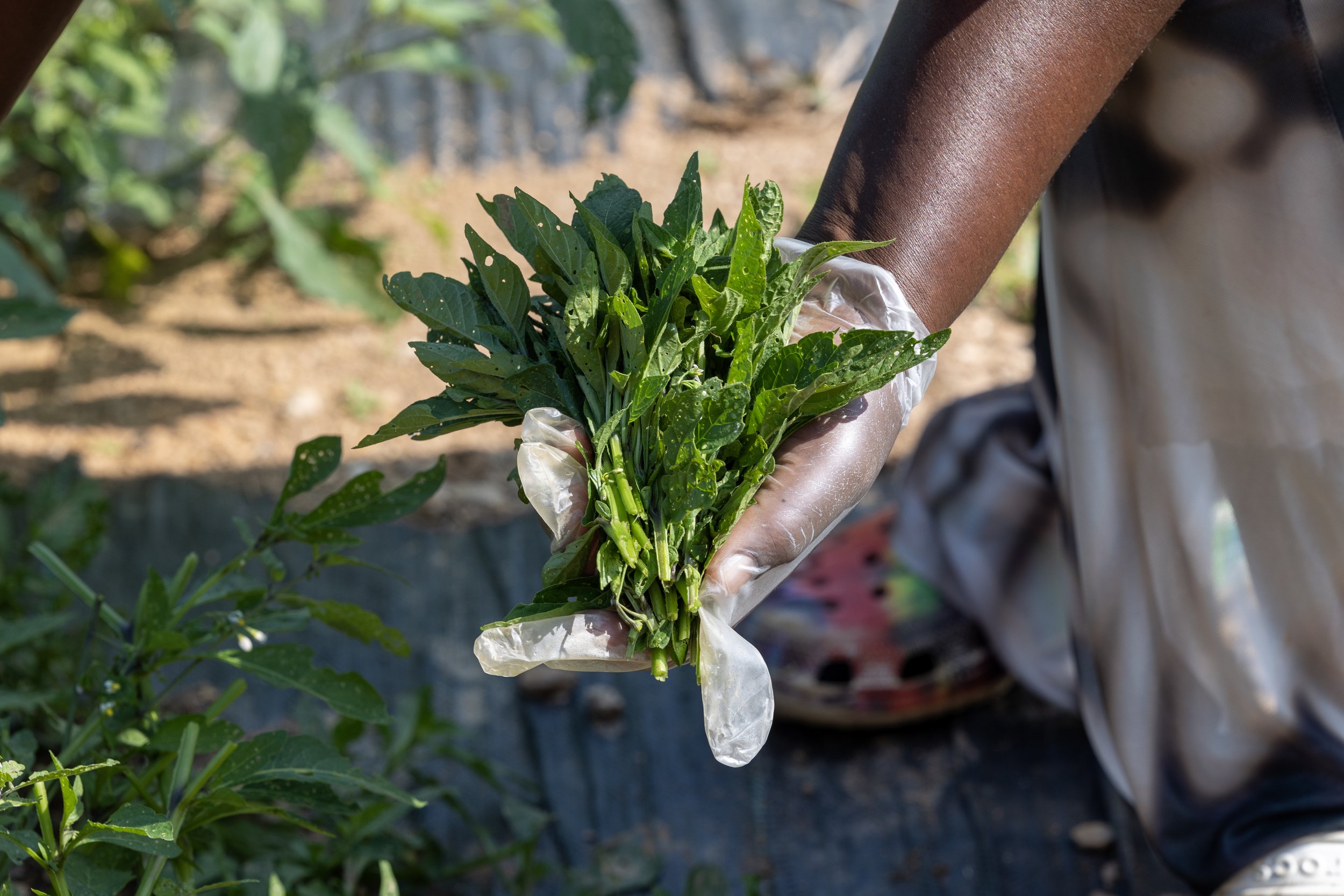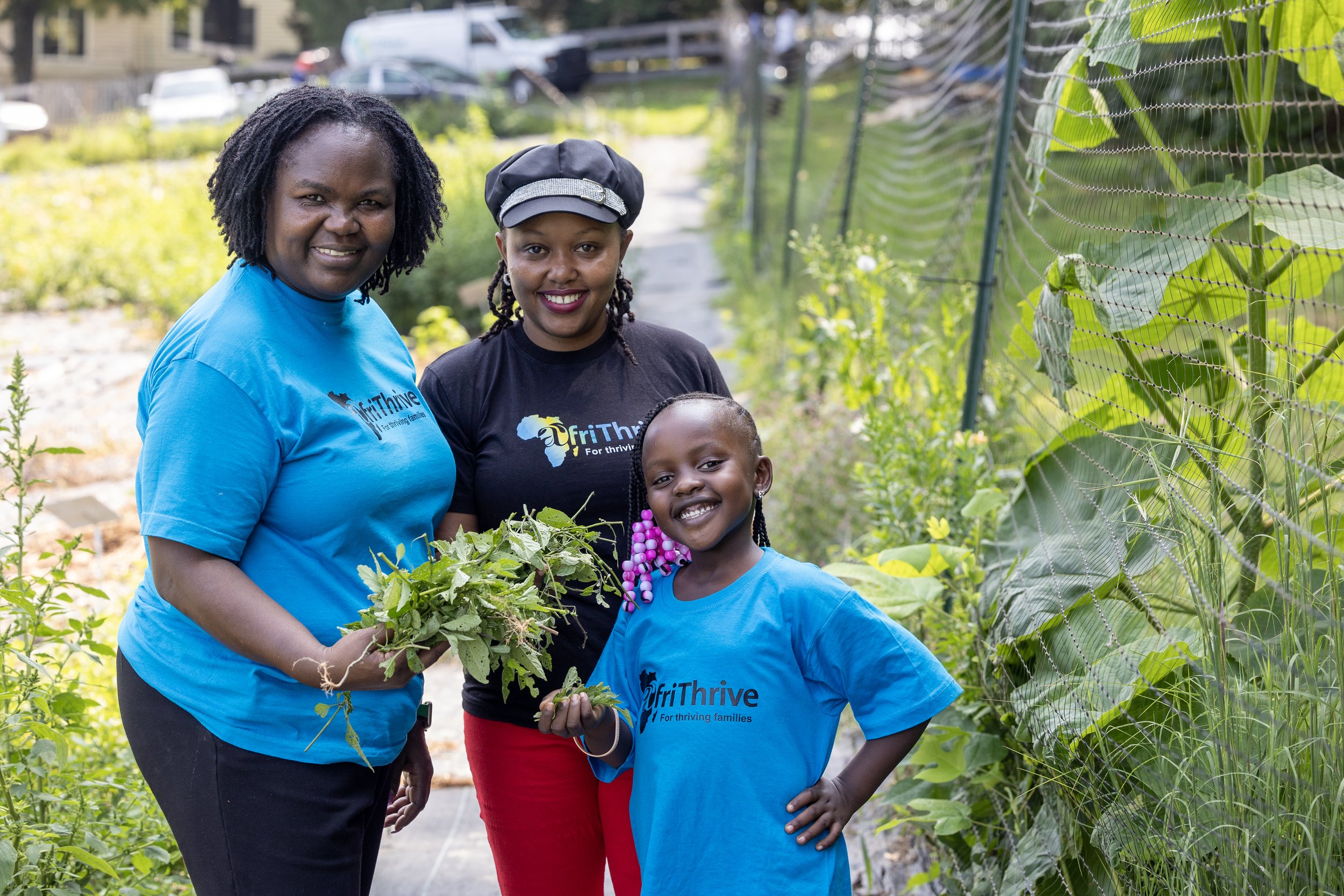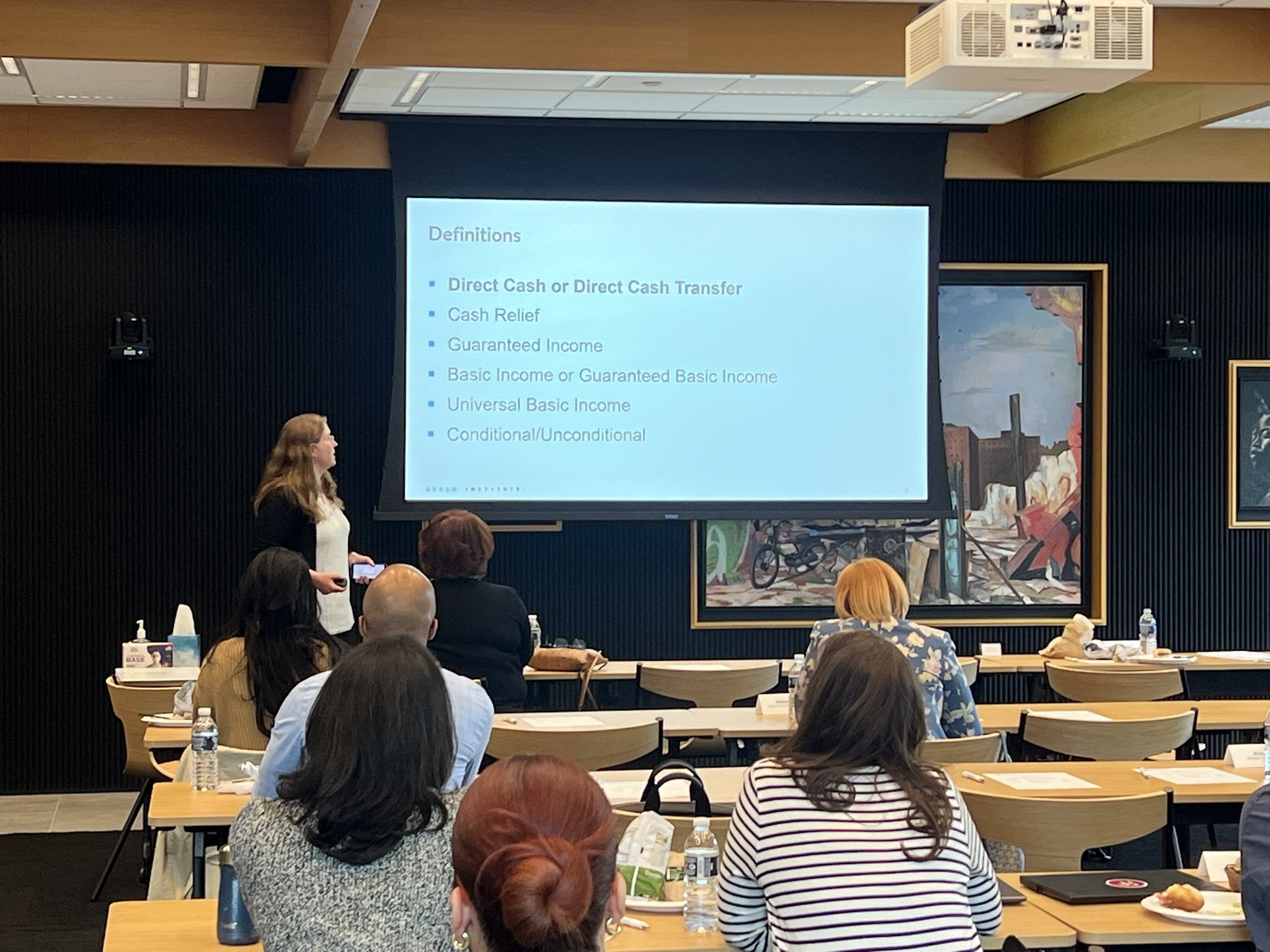The Greater Washington Community Foundation is excited to announce $945,000 in grants awarded through its Sharing Community Funds this past cycle.
The Sharing Community Funds bring together donors who share our passion for building more equitable, just, and thriving communities. With expert facilitation by Community Foundation staff, donors join together to learn first-hand about the challenges facing our community. Thanks to the generosity of this growing community of givers, together we discover and invest in visionary nonprofits working on the frontlines of our region’s most pressing needs.
In alignment with our Strategic Vision, the Sharing Community Funds focused on the three intervention areas of the racial wealth gap — Basic Needs, Economic Mobility, and Community Wealth Building.
Grants were awarded in accordance with principles of trust-based philanthropy including investments in general operating and organizational capacity building.
See Below for a complete list of our nonprofit partners for 2025, sorted by category.
2025 Sharing Community Fund Nonprofit Partners - Basic Needs
-
DC American Academy of Pediatrics (2025 Multi-Year) is a key part of a national network focused on children's health. With nearly 500 members, including many trainees, DCAAP collaborates with over 67,000 pediatricians nationwide, particularly in the DMV region. The chapter addresses health inequities in Washington, D.C., through early interventions, family support services, and policy advocacy. DCAAP's mission is to promote children's health and development while supporting pediatricians. They advocate for basic needs through educational programs, community town halls, and legislative efforts, aiming for a healthier, more equitable future for children in D.C. and beyond. Through the organization’s service priorities and programming, DCAAP educates and bring awareness to critical issues in their community, including health equity, food insecurity integrated child health services, water quality, community safety, and early childhood development and education.
The Multicultural Spanish Speaking Providers Association (2025 Multi-Year) is a vibrant and diverse community of over 1,000 educators of which about 600 are DC residents. Their initiatives create a holistic impact by enhancing educational access, promoting entrepreneurship, and addressing the professional needs of DC’s early educator workforce. MSSPA community members are employed across more than 100 licensed early learning programs and several public schools. MSSPA’s work not only supports the immigrant community’s basic needs but also fosters economic mobility, contributing to a more equitable and thriving early learning sector.
-
Community Outreach and Development CDC (2025 Multi-Year) focuses its efforts on Basic Needs, providing food, diapers, toiletries, and public assistance benefits enrollment to help persons who are in times of crisis overcome their situations.
Foundation Schools has been providing innovative programs and support services that address the educational, social, and mental health needs of children and adolescents with emotional disabilities and learning challenges.
Sasha Bruce Youthwork provides comprehensive support, including safe housing, life skills coaching, and mental health services, through programs like Promise Place (the County's only youth emergency shelter) and the Bruce Empowerment Zone (the County's only low-barrier drop-in center).
Jacob’s Ladder provides programming and educational support to help reduce the number of juveniles entering and returning to the juvenile justice system in Prince George’s County.
-
AfriThrive empowers African immigrants to grow and share healthy, culturally appropriate produce with residents facing food insecurity. Its training programs help families achieve self-reliance and economic stability.
The Black and Brown Coalition for Educational Equity and Excellence unites traditionally marginalized communities to demand an education system that serves all students equitably. The BBC takes aim at dismantling systemic barriers that have underserved and limited the success of Black, Brown, and students from low-income families and fights for equitable access to the resources needed to thrive.
Care for Your Health provides culturally sensitive in-home health care to elders. Patients are served by trained staff from their own community in touch with their circumstances and needs.
Community Bridges, Inc. empowers girls in elementary, middle, and high schools to discover their unique identity, voice, and potential through leadership development, college and career readiness, and family support and mentoring.
Community Development Network of Marylandpromotes, strengthens and advocates for Maryland’s community development industry. Its Montgomery Housing Alliance is a coalition of members in the County who work to increase affordable housing through expanding public investment, promoting equitable development, and prioritizing the needs of vulnerable communities.
Community FarmShare strives to create a local sustainable food system. It supports small scale farmers by purchasing fresh produce for low-income children and residents struggling with diet-related chronic diseases.
CREATE Arts Centerprovides art classes, art therapy, and community outreach, with a focus on fostering academic, social and emotional development for students. To level the playing field for access and inclusion, CREATE provides free and reduced fee services to traditionally marginalized constituencies, including people living on low-and-fixed-incomes.
Crittenton Services of Greater Washington helps teenage girls achieve academic success, make healthy choices, and chart their own bright futures. Its virtual and school-based programs teach teenage girls to value their education, build healthy relationships, speak up for their own needs, and explore paths toward college and careers.
Home Care Partners provides in-home services that support vulnerable seniors, helping them to age-in-place with safety, dignity, and comfort. The organization serves approximately 1,000 clients annually in the DC metropolitan area.
Horizons Greater Washington supports students from low-income families for nine years, from kindergarten through eighth grade. The organization works to foster a joyful environment full of academic, artistic, and athletic activities that inspire young minds and build a love of learning.
Housing Unlimited provides affordable, independent housing for adults in mental health recovery in Montgomery County. The organization promotes independence and recovery by providing a stable and comfortable home, allowing tenants to focus on becoming valued and integrated members of the community.
KID Museum provides interactive programming to populations that are traditionally underrepresented in STEM. They foster a “mind of a maker” mindset in the kids and youth served, working with them to become empathetic and persistent problem-solvers, teammates, and changemakers.
Kingdom Global Community Development Corporation operates the East County Hub which distributes food, diapers, and COVID-19 support. The organization also has other public-private partnerships that address food security, health and wellness, education, employment, and housing.
Manna Food Center works to eliminate hunger through food distribution, healthy eating education, and advocacy. Its extensive network supported more than 60,000 participants over the past year, distributing 4 million pounds of food.
Mary's Center provides health care, education, and social services to build healthier and stronger communities. In response to COVID-19, Mary’s Center worked to prevent the spread of the virus by offering testing and vaccinations to community members through the Greater Washington region.
Montgomery County Food Council leads the coordination and advocacy to create a more resilient, sustainable, and equitable local food system by enhancing food access, expanding food education, and supporting the County’s farms and food/beverage businesses. The Council also addresses the impact of local food production, distribution, consumption and recycling on natural resources.
National Alliance on Mental Illness of Montgomery County (NAMI MC) provides comprehensive support, education, advocacy, and public awareness to promote recovery so that individuals and families affected by mental illness can build better lives.
Rainbow Community Development Corporation provides relief for food insecurity paired with other safety net services including eviction and utility cutoff prevention, temporary short-term shelter, and job search and resume assistance.
Rainbow Place Shelter provides emergency overnight shelter to women during the hypothermia season and assists them as they transition to a better quality of life. Additionally, the organization is working to open a new year-round, LGBTQ-inclusive shelter to provide a safe haven for youth and young adults.
Red Wiggler Community Farm provides comprehensive on-farm training and education programs for adults with developmental disabilities. Half of its organic produce is donated to low-income households throughout Montgomery County.
Stepping Stones Shelter provides emergency shelter for families experiencing homelessness with the goal of moving a family from crisis to stability within 90 days. Since 1982, Stepping Stones Shelter has served over 1,035 families in an atmosphere of dignity and respect.
Story Tapestries utilizes the arts to promote accessibility and equity in educational and community spaces. Professional artists share the magic of the arts and enhance individuals’ literacy, social-emotional, and STEAM skills through performances, workshops, artist residencies, and educator training programs.
The UpCounty Hub (2024 Multi-Year) was founded with the philosophy of providing low-income individuals and families with food and essential social services, allowing them to maintain their privacy and dignity. It currently provides food to about 1,200 families weekly via drive-thru distributions, home deliveries, and choice-pantry walk-in services. Additionally, its wrap-around supports have grown to include social services, such as supporting applications for SNAP and connecting clients to other essential resources.
2025 Sharing Community Fund Nonprofit Partners - Economic Mobility
-
ScholarChips (2025 Multi-Year) directly addresses the basic needs of college- bound young adults with incarcerated parents by providing them with essential support and resources. Through their scholarship program, they alleviate the financial burden of pursuing higher education, ensuring that these students have access to the same opportunities as their peers. Additionally, ScholarCHIPS’ mentorship program and college life skills workshops equip these students with the necessary tools to navigate college successfully. They also offer mental health supports to address their emotional well-being, helping them overcome the challenges associated with having an incarcerated parent.
Urban Ed plans to expand and enhance their STEMAcad workforce & career development program for upskilling & reskilling low-income people of color and advancing the minority pool of talent in STEM.
-
Life After Release works with low-income Black women and families in PG County who are currently or formerly incarcerated to chart pathways out of poverty to help them build a self-determined life after release.
Life Asset offers microloans, training , and support for entrepreneurs to make their business dreams a reality.
-
CareerCatchers is dedicated to working with under and unemployed, low-income and disadvantaged residents of Montgomery County. Annually, CareerCatchers serves over 1,000 people with intensive career coaching and career navigation services, the majority of whom live in areas with the deepest disparities in homeownership and income.
CollegeTracks (2023 Multi-Year) supports first-generation-to-college students and students from low-income and/or immigrant households, by providing customized support to navigate the admissions and financial aid applications, degree completion, and pathway to a career. Each year, thousands of students in Montgomery County graduate from high school without a postsecondary plan that could lead to meaningful careers and upward economic mobility. Since 2003, its network of staff and volunteers has helped over 11,000 students.
Crossroads Community Food Network provides training and support for startup food businesses and healthy eating education to local students and shoppers at Crossroads Farmers Market. Its farmers market nutrition incentives allow federal nutrition benefits recipients to double the value of these benefits spent at the market.
Future Link (2024 Multi-Year) is dedicated to closing the opportunity divide for first-generation-to-college young adults in Montgomery County (ages 18-25). The organization provides the professional development, resources, and individual support necessary for higher education, career-based training, and workforce entry, ultimately achieving lasting self-sufficiency. Annually, Future Link serves 315 students with comprehensive services including paid internships, career coaching, mentoring, tutoring, scholarships, and academic guidance.
Housing Initiative Partnership (2025 Multi-Year) is a 35-year-old affordable housing developer and HUD-approved counseling agency which develops innovative affordable housing, revitalizes neighborhoods and equips people to achieve their housing and financial goals. At its Gaithersburg Financial Empowerment Center, HIP’s integrated services model transforms clients’ financial health through coordinated interventions and referrals to other community resources.
Identity, Inc. (2024 Multi-Year) empowers youth and their families with social-emotional, academic, workforce, and life skills to succeed in the modern world. It works with Latino and other historically underserved residents at schools, in the community and on playing fields. Like family, Identity celebrates victories and offers extra help when something more is needed. Last year alone, Identity assisted more than 50,000 Montgomery County residents.
Interfaith Works (2025 Multi-Year) ensures that Montgomery County residents have access to vital services and a pathway to greater stability. They achieve this through supplying basic needs (food, clothing, emergency financial assistance), a job readiness program, and a suite of housing programs including four emergency shelters, shared supportive housing, and a Drop-In Center. Interfaith Works employs over 200 staff members and partners with 7,000 volunteers to support 35,000 clients a year who are experiencing poverty.
Montgomery College Foundation co-leads the Achieving Collegiate Excellence and Success (ACES) program in partnership with Montgomery County Public Schools and The Universities at Shady Grove. ACES provides individualized academic coaching, scholarship opportunities, and career readiness to underrepresented high school students, for a seamless and supportive pathway to a bachelor’s degree.
Montgomery County Black Collective (2025 Multi-Year) provides business development, coaching, and individual/family financial literacy opportunities for start-up entrepreneurs and small business owners. Its programs are rooted by tailored resources, mentorship, and peer supports which empower entrepreneurs with the skills necessary to achieve economic independence, build a more equitable future, and drive positive change in their communities.
Phase 3 Training Corporation provides hands-on training in the elevator/escalator, electrical, solar, and HVAC industries. Through innovative and effective training models, they aim to reduce economic disparities and foster long-term community development and well-being.
2025 Sharing Community Fund Nonprofit Partners - Community WEalth building
-
Latino Economic Development Center is a Community Development Financial Institution (CDFI) with a 33-year history in Greater Washington. Their mission is to serve as a catalyst that drives the economic and social advancement of low-to moderate-income Latinos and other underserved communities by equipping them with the skills and tools to achieve financial independence, acquire personal and business assets, create generational wealth and become leaders in their communities. While each client of theirs has a different path to economic mobility, each department (Small Business/Lending, Housing Counseling/Eviction Prevention/Tenant Services, Direct Community Investments, and Financial Empowerment) helps them chart that path, stabilizing in the short term, while building long-term sustainability.
birdSEED is focused on creating economic mobility through home ownership so Black, Indigenous and persons of color who have been historically disadvantaged in the home buying process can begin building wealth. They do this by offering down payment assistance grants to first time home buyers.
-
FSC First is a reliable provider of creative and innovative business financing solutions to established and emerging businesses in the State of Maryland. Their Level Up program provides access to capital, training, coaching, mentoring, and networking opportunities for entrepreneurs and small businesses.
-
Habitat for Humanity Metro Maryland provides home preservation and homeownership programs that help low-income families live a more stable, self-reliant life. Its staff, homeowners, and volunteers have completed nearly 1,050 projects since its inception.
IMPACT Silver Spring supports the creation of inclusive local economies by connecting people in an intentional network spanning individuals, neighborhoods, and leaders in the community. Ultimately, IMPACT is working to advance racial equity by transforming county policies, institutions, structures, and systems.
2025 Sharing Community Fund Nonprofit Partners - Capacity building
-
Nonprofit Prince George’s: Equips and empowers Prince George’s County nonprofits to better serve our communities.
-
Montgomery Moving Forward is a collective impact initiative which convenes leaders from government, business, philanthropy, education, and nonprofits to solve complex problems facing the county. As a capacity building partner, Sharing Montgomery’s grant empowers MMF’s nonprofit leaders to advocate around pressing issues that affect their clients, especially around challenges related to economic opportunity and early childhood education.
Nonprofit Montgomery supports local organizations around government relations, advocacy, strategic communications, financial management, metrics tracking, and cross-sector problem solving. As a capacity building partner, Sharing Montgomery’s support will enable our direct-service grantees to receive the personalized support and connections that will help them deepen their impact.
-
*In order to promote organizational growth and stability amongst the 2024 cohort, the Sharing NoVA committee made the decision to focus it’s 2025 grantmaking on capacity building.
Joyful Hands (2024 Multi-Year) is deeply rooted in the conviction that education, literacy, and access to community resources are foundational pillars of thriving societies. They provide access to essential school supplies and nutritious food for community members.
Culmore Clinic (2024 Multi-Year) advances health by bringing community together to provide primary care, health education and disease prevention services at no cost to uninsured neighbors in Fairfax County.
Loving Hands Touch Ministry (2024 Multi-Year) addresses immediate community needs while empowering individuals and families to achieve self-sufficiency, ensuring access to necessities like food, shelter, healthcare, and education.
The Growth and Healing HUB (2024 Multi-Year) grows and nurtures the mental health and well-being of children, youth, young adults, and families. They provide services to anyone residing in the state of Virginia and strive to help all feel safe & supported and receive the help they deserve.
New Hope Housing (2024 Multi-Year) provides case management, permanent housing and shelter to support the needs of homeless individuals in Northern Virginia.
Arm & Arm, Inc (2024 Multi-Year) provides peer-to-peer mentoring and trauma recovery services to communities across Northern Virginia.
Future Kings (2024 Multi-Year) uses education, mentoring, training, practical experiences, and mastery of 21st century technology in order to create a pipeline of young men from underserved communities who excel in STEM related careers and positively influence their communities.
Hardemon Dynasty, Inc (2024 Multi-Year) provides affordable housing for young adults aging out of foster care and offer sufficient support during their transition to independence.























































